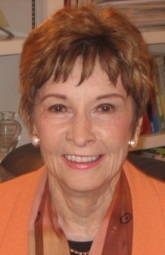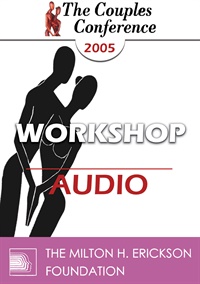CC05 Workshop 12 - Developing Creative Solutions - Peggy Papp, ACSW
- Average Rating:
- Not yet rated
- Topic Areas:
- Workshops | Couples Therapy | Art and Creativity
- Categories:
- Couples Conference | Couples Conference 2005 | Pioneers in Couples and Family Therapy
- Faculty:
- Peggy Papp, ACSW
- Duration:
- 1:52:55
- Format:
- Audio Only
- Original Program Date:
- Mar 05, 2005
- License:
- Never Expires.
Description
Description: A workshop focusing on using creativity and collaboration to move past therapeutic blocks. Strategies include reflective questions, literature, and experiential exercises to shift perspective and address emotional patterns. Case examples show how books, fantasy scenarios, and symbolic storytelling help couples uncover fears, power dynamics, and relational contradictions. Tools like feedback forms and gender questionnaires support deeper understanding and personalized interventions.
Syllabus Description: One of the most effective ways of finding creative solutions to complex problems is to broaden the couple's frame of reference from the literal to the metaphorical. By using metaphors, symbols, fantasies, rituals and stories the therapist helps couples look "outside the box" for new perceptions and experiences. This process will be illustrated with videotaped excerpts.
Educational Objectives:
- To describe the process of looking "outside the box" in solving complex problems.
- To describe two ways of using metaphors to change experiences and perceptions.
*Sessions may be edited for content and to preserve confidentiality*
Credits
Handouts
| Timestamped Transcript (762.8 KB) | 17 Pages | Available after Purchase |
| Timestamped Transcript (820.2 KB) | 19 Pages | Available after Purchase |
| Ericksonian Learning Snapshot (247.4 KB) | 2 Pages | Available after Purchase |
Faculty

Peggy Papp, ACSW Related Seminars and Products
PEGGY PAPP, A.C.S.W., is a therapist in private practice and Co-Director of the Brief Therapy Project at the Ackerman Institute for Family Therapy in New York City. She is recipient of the lifetime achievement award from the American Family Therapy Association and the award for distinguished contribution to Marital Family Therapy from the American Association for Marital and Family Therapy. Her latest book is Couples On the Fault Line.


